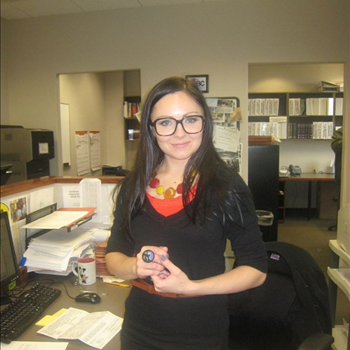Right Now
Top 7 Stomach Burning Causes and How to Address Them

Experiencing stomach discomfort, especially as you age, is quite common. Often, mild pain or a burning sensation in the stomach isn’t a major concern and can be managed with over-the-counter medications. However, persistent or worsening symptoms might indicate an underlying condition that requires medical attention. Here are seven common causes of stomach burning and what you can do about them.
Food and medications
Certain foods and medications can trigger stomach pain. Unidentified food sensitivities may lead to indigestion and a burning sensation. Common culprits include:
Acidic foods like tomatoes and citrus fruits
Garlic and onions
Alcohol
High-fat foods
Caffeinated and carbonated beverages
Additionally, some pain relievers, such as aspirin, ibuprofen, naproxen, and celecoxib, can cause stomach discomfort. If you suspect your diet or medications are the issue, try identifying and eliminating these triggers.
Ulcers
Gastric ulcers are sores that develop on the lining of the stomach. They can be caused by an excess of stomach acids, infections (such as Helicobacter pylori), or the side effects of certain medications. Ulcers can lead to significant discomfort and a burning sensation. Most ulcers require medical treatment, including prescription medications to reduce stomach acid and eradicate infections.
Functional dyspepsia
Functional dyspepsia refers to chronic indigestion with no clear cause. You may experience pain or a burning sensation in the stomach without any identifiable reason. Other symptoms can include gas and bloating. While functional dyspepsia isn’t dangerous, it can be uncomfortable and disruptive. Managing stress and dietary changes can often help alleviate symptoms.
Gastroesophageal reflux disease (GERD)
GERD occurs when stomach acids flow back into the esophagus, causing a burning sensation. Symptoms can include a sour taste in the mouth, regurgitation, a persistent cough, and difficulty swallowing. Lifestyle changes such as avoiding trigger foods, eating smaller meals, and not lying down immediately after eating can help manage GERD. Over-the-counter or prescription medications may also be necessary.
Irritable bowel syndrome (IBS)
IBS is a common chronic digestive disorder with an unknown cause. Symptoms can include a burning sensation in the stomach, gas, cramps, diarrhea, or constipation. Managing IBS often involves dietary changes, stress management, and medications to control symptoms. Consulting with a healthcare provider can help you develop an effective treatment plan.
Bacterial infections
Bacterial infections in the stomach can cause burning abdominal pain and other symptoms like bloating, increased belching, nausea, reduced appetite, and unexplained weight loss. Treating bacterial infections typically involves antibiotics prescribed by a doctor. Ensuring proper hygiene and food safety can help prevent these infections.
Cancer
Various types of cancer can develop in the stomach, posing serious health risks. Stomach cancer often progresses slowly, with symptoms worsening over time. You may experience pain, burning, a feeling of fullness after small meals, abdominal swelling, persistent discomfort, changes in appetite or weight, vomiting, nausea, blood in the stool or vomit, and general weakness and fatigue. Early detection and treatment are crucial, so consult a doctor if you experience any concerning symptoms.
Home Treatments for Stomach Burning
To alleviate a burning sensation in the stomach, consider the following home treatments:
Avoid Trigger Foods: Eliminate foods and beverages that cause discomfort, such as caffeine, soda, alcohol, and acidic foods.
Over-the-Counter Medications: Medications like Tums, Pepto-Bismol, and Pepcid can help relieve mild stomach aches.
Adjust Body Position: Sitting up instead of lying down during an episode can help. Taking small sips of water may also be beneficial.
Avoid Overeating: Eating smaller portions can prevent discomfort.
Preventing Stomach Burning
To reduce the likelihood of recurring stomach pain, consider these lifestyle changes:
Quit Smoking: Smoking can exacerbate stomach issues.
Manage Stress: Practice stress-reduction techniques such as meditation or exercise.
Maintain a Healthy Weight: Being overweight can increase the risk of stomach problems.
Eat Smaller Meals: Large meals can overwhelm the stomach.
Avoid Late-Night Eating: Eating close to bedtime can trigger discomfort.
Limit Alcohol Intake: Excessive alcohol can irritate the stomach lining.
If your medications cause stomach discomfort, consult your doctor for possible alternatives. They might be able to suggest a more tolerable option.
More Posts



















Map
Amelia Grant
Get DirectionsAmelia Grant
-
31-57 37th St
Long Island City, New York 11103
United States - 6462709836
Report This Post
Please complete the following requested information to flag this post and report abuse, or offensive content. Your report will be reviewed within 24 hours. We will take appropriate action as described in Findit terms of use.


